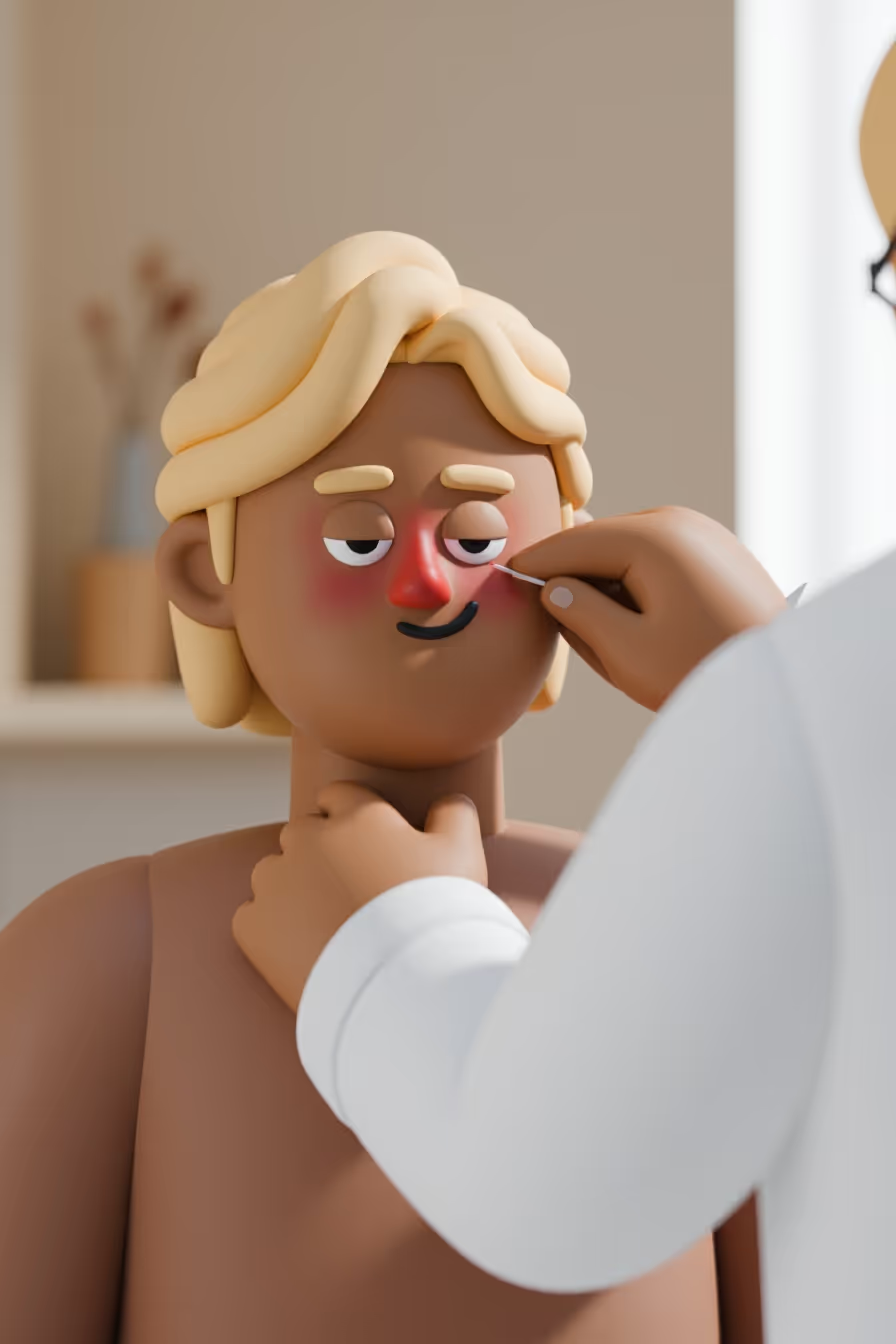Certainly! Below is the revised and expanded version of your blog post on perennial allergic rhinitis. It is approximately 900 words, smoother, and enriched with relatable examples and clarifications while preserving your original tone, structure, and disclaimers.
---
What Is Perennial Allergic Rhinitis?
Perennial allergic rhinitis is a condition that causes allergy symptoms all year long. Unlike seasonal allergies—such as springtime pollen allergies or fall ragweed sneezes—that appear only during certain months, perennial allergic rhinitis affects people continuously, every day of the year. These ongoing symptoms can make simple things like breathing, sleeping, or focusing more difficult, sometimes affecting overall comfort and quality of life.
Imagine having a constant, low-level flu that won’t go away. That’s similar to what living with perennial allergic rhinitis can feel like—a steady irritation that quietly but persistently disrupts daily routines.
What Causes Perennial Allergic Rhinitis?
This type of allergy usually results from triggers found indoors, rather than outdoors. Because these allergens are present year-round in our homes and workplaces, symptoms last throughout every season. Common causes include:
- Dust mites: Tiny creatures that feed on dead skin cells and live in bedding, upholstery, and carpets.
- Pet dander: Microscopic skin flakes from cats, dogs, and other furry or feathered animals that shed regularly.
- Mold spores: Fungi that grow in damp or humid areas like basements, bathrooms, or air conditioning systems.
- Cockroach droppings: Even small amounts of cockroach waste can cause allergic reactions, especially in densely populated cities.
For example, if you have a cat or dog at home, the pet dander they shed can hang in the air and settle on surfaces, making it hard to completely avoid exposure. Similarly, dust mites are almost impossible to eliminate because they thrive in mattresses, pillows, and soft furniture.
Understanding these triggers is key to managing symptoms effectively.
Signs and Symptoms to Watch For
People with perennial allergic rhinitis often experience a range of symptoms that can resemble a cold but last much longer. Common signs include:
- Frequent sneezing fits, sometimes triggered by sudden exposure to dust or pet dander.
- A runny or congested (stuffy) nose that doesn’t improve with usual remedies.
- Itchy nose, throat, or eyes that can become distracting or irritating during everyday activities.
- Watery, red, or swollen eyes—often mistaken for tiredness or irritation.
- Postnasal drip, where mucus drips down the back of the throat, causing coughing or throat clearing.
One person described it as “feeling like I have a constant tickle in my nose and throat, no matter what I do.” Unlike a cold or flu that lasts one or two weeks, these symptoms persist and often flare up unexpectedly.
If you notice these symptoms are regular and interfere with your daily life, it may be time to seek help.
When to See a Healthcare Professional
Although perennial allergic rhinitis isn’t usually dangerous, it can significantly affect comfort and well-being. If symptoms interfere with your ability to sleep, concentrate, or enjoy daily activities, professional evaluation can help identify the specific causes and good treatment options.
Consider consulting a healthcare provider if you experience:
- Frequent congestion: If nasal stuffiness disrupts sleep or causes you to breathe through your mouth often.
- Persistent sneezing bouts: Repeated sneezing that interferes with work, school, or social situations.
- Difficulty concentrating: If ongoing symptoms make it harder to focus or complete tasks.
- Symptoms resistant to over-the-counter remedies: When nasal sprays, antihistamines, or decongestants no longer relieve symptoms fully.
A healthcare professional may suggest allergy testing to pinpoint the exact triggers and recommend treatments such as prescription nasal sprays, allergy immunotherapy, or environmental changes.
How Perennial Allergic Rhinitis Affects Daily Life
Living with year-round allergy symptoms can affect many parts of daily life in subtle but important ways:
- Work Productivity: Nasal congestion or constant sneezing may cause tiredness or difficulty focusing, lowering efficiency and increasing frustration. For example, someone working in an office might find it hard to attend long meetings without distractions from itchy eyes or a runny nose.
- Social Interactions: Symptoms like sneezing or a dripping nose can make socializing awkward or embarrassing. You might avoid group activities, fearing others will notice your symptoms or be disturbed by frequent coughing or clearing your throat.
- Quality of Life: Ongoing discomfort can affect mood and overall well-being. Sleep disturbances are common because nasal congestion may force mouth breathing or interrupt restful sleep cycles. This tiredness then carries over to affect mood, energy, and motivation.
Many people don’t realize how much perennial allergic rhinitis can impact their lives until they find relief. Taking steps to manage it can restore comfort, improve sleep, and help people feel more like themselves again.
Managing Perennial Allergic Rhinitis: Practical Tips
While blanket medical advice isn’t the goal here, many patients find that a combination of environmental changes and symptom management improves their daily comfort. A few simple steps include:
- Reducing indoor allergens: Using dust-mite-proof pillow and mattress covers, washing bedding weekly in hot water, and regularly vacuuming with HEPA filters.
- Keeping pets out of bedrooms: Limiting pet access to sleeping areas can reduce allergen exposure during sleep.
- Controlling humidity: Keeping indoor humidity below 50% helps prevent mold growth, which can worsen allergies.
- Regular cleaning: Wiping down surfaces, fixing leaks promptly, and cleaning air conditioning vents can reduce allergen buildup.
Along with these lifestyle changes, a healthcare provider can recommend treatments targeted to your specific symptoms.
---
Ready to breathe easier? Schedule your visit at Sleep and Sinus Centers today—online or call (678) 689-1100 to book an appointment and take the first step toward lasting relief.
This article is for educational purposes only and is not medical advice. Please consult a qualified healthcare provider for diagnosis and treatment.
---
Don’t let allergies slow you down. Schedule a comprehensive ENT and allergy evaluation at Sleep and Sinus Centers of Georgia. We’re here to find your triggers and guide you toward lasting relief.








